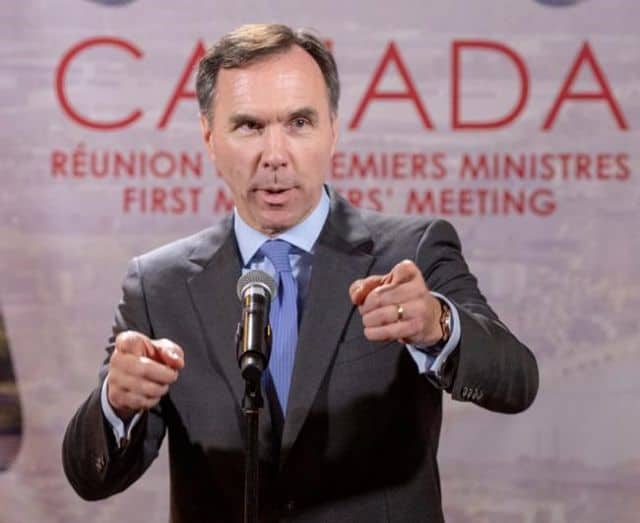
For the first time in a decade, Ontario will not receive an equalization transfer from Ottawa, prompting the province’s finance minister to join calls for the federal government to review how the program is set up.
Canada’s finance ministers are in Ottawa for the second of their two yearly meetings, which started with a working dinner at an Ottawa hotel Sunday night.
Just ahead of that dinner, federal Finance Minister Bill Morneau released publicly the amount of money Ottawa will transfer to the provinces and territories in 2019-20, including nearly $20 billion in equalization.
It’s up almost $880 million from the current year, but that amount will be split among just five provinces — Quebec, Manitoba, Nova Scotia, Prince Edward Island and New Brunswick. For the first time since the 2008 recession put Ontario on the have-not province list, Ontario is not among them.
Quebec on the other hand is getting more than $13 billion from the program, an increase of nearly $1.4 billion.
Technically Ontario’s economic growth was good enough in 2016-17 to push it out of have-not status, when a province’s finances are considered lower than average and qualifies them for equalization. However because of the way the program works, Ontario still received $963 million in 2018-19.
The government was well aware it would not be qualifying this year for equalization but Ontario Finance Minister Vic Fedeli said it’s further proof of why the equalization program needs an overhaul. He said Ontario will contributed $8 billion into equalization, and won’t get anything from it. Overall Ontario will give Ottawa $12.9 billion more in taxes than it will receive from federal spending, he said.
“So we’re certainly calling on the feds for a review of their federal transfer payments because we want to make sure that Ontario businesses and families are getting our fair share,” said Fedeli.
Alberta, Saskatchewan and Newfoundland have also called for changes to the formula.
Morneau said the formula was renewed earlier this year for a five-year period after extensive discussions from his department, but he knows the formula will be raised at the table.
“Ontario’s moving out of that program is a reflection of sustained positive economic results in Ontario and I expect that is overall positive but it will almost certainly be a discussion,” Morneau said.


